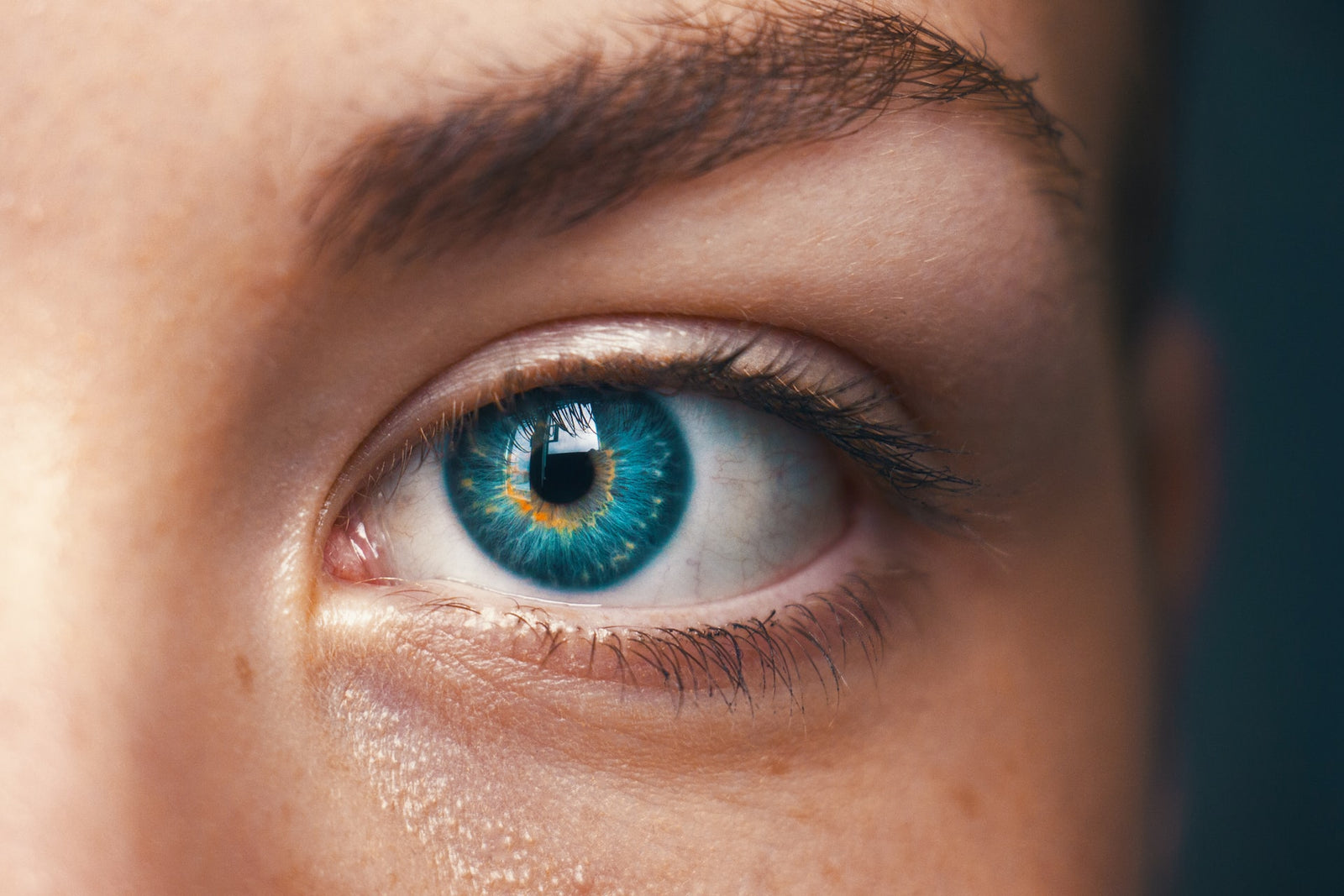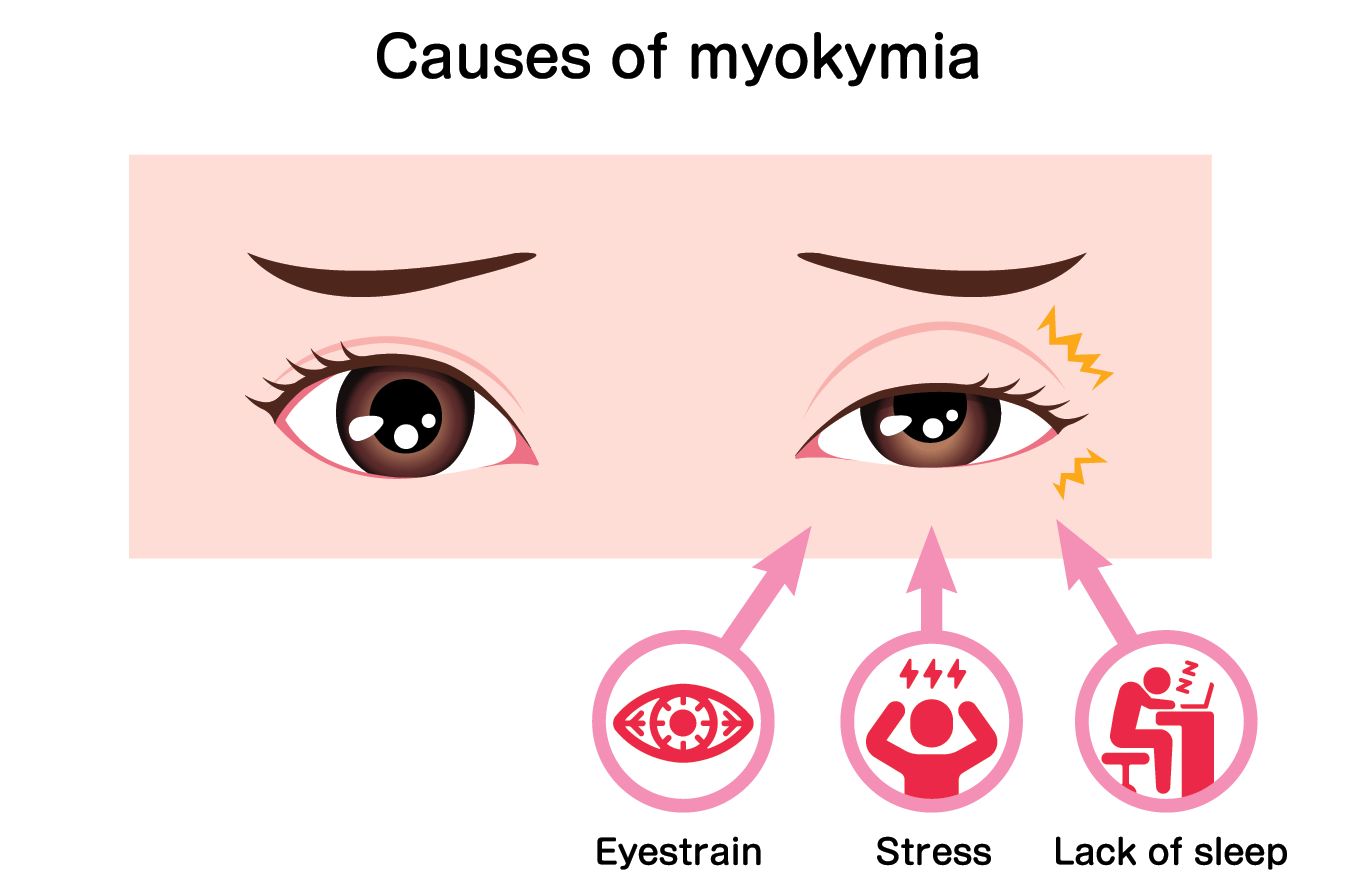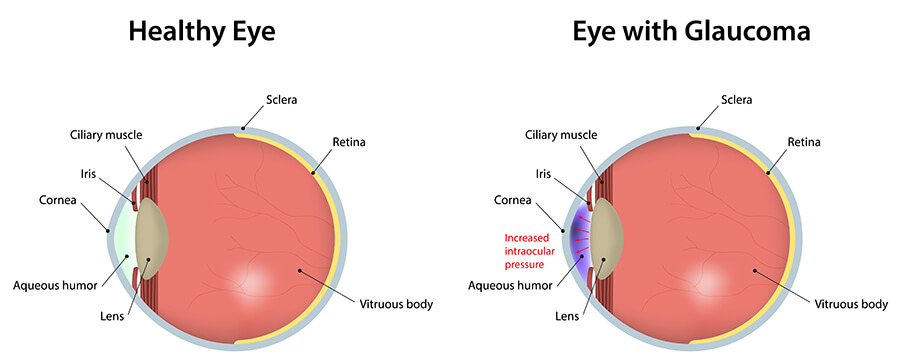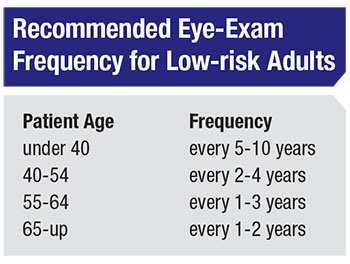Find yourself feeling tired even though it’s the middle of the day? You’re not alone.
In reality, 42 percent of Americans report that they start feeling tired as early as noon, according to a recent study.
Aside from disrupting productivity, insomnia leads to long-term health consequences, including an increased risk of heart disease, diabetes, and more.
On top of that, many people don’t realize how a lack of sleep can impact vision and eye health. If you’ve ever found your vision feeling fuzzy after a poor night’s rest, sleep deprivation is likely to blame.
Lack of sleep is nothing to roll your eyes at. Addressing sleep issues should be your main priority when it comes to improving and maintaining eye health.
Sleep-deprived nights lead to sleep-deprived eyes.
Without enough time to rest and restore themselves, our eyes can’t function at their full potential. One of the most common vision symptoms linked to a lack of sleep is eye twitching.
Eye Spasms and Sensitivity
When we rest, our eyes rest, too. When we lie awake, our eyes work overtime.
Ever had a twitch in your eye that just doesn’t seem to go away? These involuntary eye spasms, known as myokymia, quickly become disruptive.
Although they’re not thought to be harmful to your vision, eye spasms easily become aggravating and distracting.
Aside from eye spasms, you may find that your eyes are more sensitive to light than usual if you’re short on shut-eye.
This leads to eye fatigue, squinting, and, in turn, more twitching and spasms. As a result, dry eyes, itchiness, and redness follow.
Sleep-Deprived Eyes = Dry, Itchy Eyes
A shortage of sleep can quickly lead to dry eyes, which may include itchy, red, painful eyes. When we’re sleep deprived, the eyes typically produce fewer tears than usual.
When our eyes are irritated, the first thing we tend to do? Rub them.

Although it’s instinctual, rubbing the eyes increases our chances of introducing bacteria, meaning our risk of getting an eye infection or falling ill skyrockets.
Moreover, a lack of sleep is known to lower immunity, tacking on an even greater risk for illness.
Reaching for some eye drops provides temporary relief from dry eye, but overusing eye drops may lead to more harm than good over time.
According to Laser Eye Center, overusing eye drops tends to wash away your natural tears, drying them out even more in the long run.

Aside from the physical sensation of dry eye, aesthetic consequences are another possibility. Sleep-deprived eyes are known for featuring pronounced under-eye bags.
Undereye Bags and Dark Circles
When we’ve experienced a lack of sleep, eyes with pronounced bags make their appearance. In fact, undereye eye bags are hallmarks of sleep-deprived eyes.
The skin under your eyes is thinner than the rest of your body. Therefore, blood vessels under the eyes are much closer to the surface of your skin.
Running short of restorative sleep leads to dilated blood vessels and increased fluids settling underneath the eyes.
The result? Pesky under-eye bags and dark circles. More pronounced wrinkles may follow, too.
According to recent research, sleep-deprived individuals report that fine lines and wrinkles are more noticeable than others who got a good night’s sleep.
You may even find yourself to be more susceptible to broken blood vessels in the eyes due to a lack of sleep. When we’re short on sleep, we tend to strain our eyes more often.

As a result, broken blood vessels may follow. While they aren’t usually a cause for concern, they can be visible within the eye, distracting your colleagues.
While under-eye bags, dark circles, wrinkles, and broken blood vessels are all aesthetic symptoms of a lack of sleep, eye impairment is yet another risk associated with sleep deprivation.
Irreversible Visual Impairment
Over time, the dangers of sleep deprivation stack up and enter extremely dangerous territory. The same applies to your eyesight.
A prolonged lack of sleep puts continuous stress on your eyes. Eye floaters may begin to appear that obstruct your vision.
Even more concerning? Sleep deprivation was recently linked to an increased risk of glaucoma.
What’s more, those with sleep disorders like obstructive sleep apnea are more likely to develop glaucoma than those without a sleep disorder.
@somnifix Poor sleep = poor vision! 👁🔎 lack of sleep leads to #dryeye #glaucoma and more! #greenscreen #greenscreenvideo #eyehealth #sleepdeprivation ♬ Escapism. - Super Sped Up - RAYE
Glaucoma includes several eye diseases that increase inner eye pressure to high levels, leading to the potential damage of the optic nerve.
If the optic nerve becomes severely deteriorated, permanent vision loss is possible.
Even more frightening, glaucoma affects more than three million Americans, but many are unaware they have it in the beginning stages due to a lack of noticeable symptoms.
Therefore, early diagnosis is key to preventing optic nerve damage and vision loss.
Improve Sleep Quality & Maintain Eye Health
If you struggle to get adequate amounts of sleep, your long-term eye health is likely a concern, too.
Several lifestyle changes not only help you get your sleep habits in check but also your eye health in check - literally.
Regular eye exams can help your eye doctor pinpoint and solve vision issues and concerns before they become irreversible.
Moreover, shifting your focus toward improving sleep patterns can relieve eye strain caused by sleep deprivation.
Decrease screen time before bed that interferes with circadian patterns due to blue light emitted from electronics.
Build a healthy bedtime routine that includes relaxing activities that promote restful sleep, such as a hot bath, light stretching, or reading.

Overall, consistency is key. That means maintaining consistent sleep and wake times each day, even on the weekends.
That said, it’s easier to control the time you wake in the morning than the time you fall asleep at night.
Maintain a consistent wake time with an alarm each morning and aim for direct sunlight exposure upon waking to boost serotonin and vitamin D levels that promote wakefulness.
Address sleep-disordered breathing that fragments and diminishes sleep quality, leading to sleep disorders and sleep deprivation.
Eyes, Mouth, and Nose?
We know now that a lack of sleep can seriously hinder your eye health. But did you know that poor airway function can ruin your sleep quality?
Mouth breathing during sleep obstructs the airway, leading to snoring. Snoring not only disrupts our sleep - it causes poor oxygenation. If left untreated, snoring can even cause sleep disorders like sleep apnea over time.
Nasal breathing, on the other hand, prevents disordered breathing, poor oxygenation, and snoring at night.
Aside from promoting solid airway function, nasal breathing boosts oxygenation and produces nitric oxide, a vasodilator known to boost immune function and decrease stress.
There’s just one issue: how do you ensure you’re breathing through your nose rather than your mouth if you’re asleep? Mouth tape.

SomniFix Strips offer a hypoallergenic lip seal crafted from recycled, gentle materials free from gluten, latex, and other irritating chemicals.
Additionally, our strips include a patented central breathing vent, so you’ll be able to mouth tape stress-free knowing that a mouth breathing option is available if you experience overnight congestion.
They say hindsight is 20/20, but it doesn’t have to be! Protect your eyesight and tape your way to snore-free, quality sleep with the help of SomniFix!






